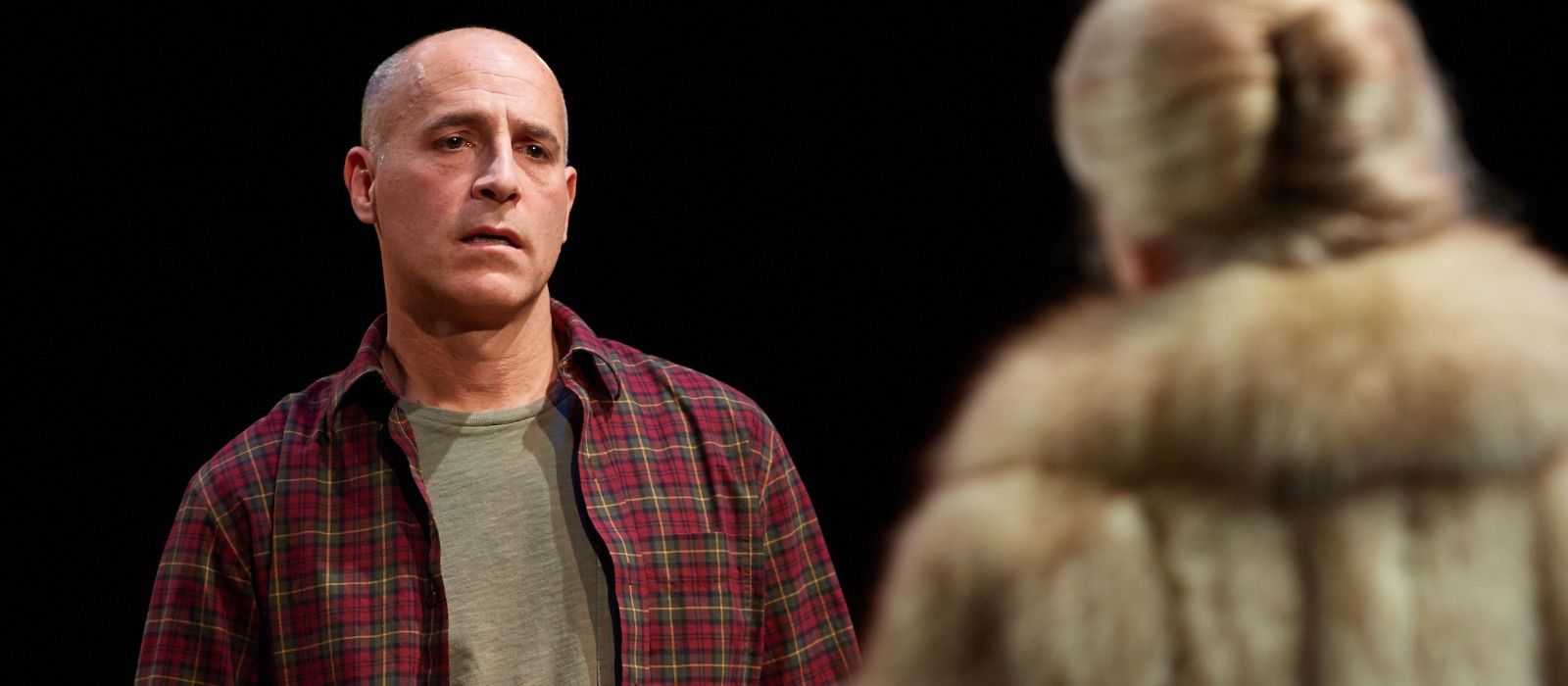Actor Harry Bouvy on the importance of listening and remembering in MOTHERS AND SONS
Wednesday | Nov. 9, 2016
For the final stretch of Mothers and Sons, Harry Bouvy sits silently on stage and listens.
His character, Cal, has just engaged in more than an hour of testy conversation with Katharine, an unexpected visitor in his Manhattan apartment. They’re two people united by buried grief: Andre, Cal’s former partner and Katharine’s son, died 20 years ago from AIDS. Katharine has reappeared in Cal’s life without warning, bringing with her an icy front of barely concealed disdain. She never approved of Andre’s sexuality or the man with whom he shared the final years of his life.
They’ve talked and talked, through exchanges both poignant and quarrelsome, as they try to reconcile conflicting memories of the man they both loved. But now it’s time for Cal (and Bouvy) to sit and listen as Katharine breaks down and reveals the profound loneliness that lies at the core of her resentments.
Bouvy teaches acting for stage and screen in New York City, and he’s often stressed the importance of listening to his students. Regardless of the medium, listening places the actor squarely in the moment and connects them with their fellow performers. Listening, Bouvy says, is also one of the chief virtues that Terrence McNally’s Mothers and Sons offers to its audiences.
“It’s this idea that if people talk and people listen, people can walk over these bridges and really meet each other on their opposing sides,” Bouvy says.
This play is deeply personal for him. In 2009, Bouvy lost his partner of 14 years to AIDS. Like Cal, Bouvy later married following the legalization of gay marriage.
“There’s this line where Cal says, ‘The first time I tried to use the word ‘husband,’ nothing came out,’” Bouvy says. “And that’s very true for me. I’m thrilled every time I get to introduce my husband Sean as my husband. But it’s not without its bumps. Whether straight people realize it or not, when I introduce my husband, I am coming out. Every day, I’m sort of forced to come out by choosing whether or not to say, ‘this is my husband.’”
But more than just the parallels between the script and his life story, Bouvy knows many people who lived through the height of the AIDS epidemic. While he sees Mothers and Sons as primarily a play about family, preserving the painful history of the disease and its continued presence is elemental to the piece.
As Cal’s partner Will says in the play: “Young men are still falling in love… and some of them are still dying.”
“People tend to think we’re kind of safe from (AIDS) now, that it’s over,” Bouvy says. “My story is that it’s not. Just seven years ago I had a partner die. Trust me, it’s still alive and well.”
That being said, the play isn’t just a dour memorial or an ideological think-piece. There’s a radiant element of optimism in the script in the form of Bud, Cal and Will’s 7-year-old son. Bouvy says he’s inspired both by Bud’s character as well as Simon Desilets, the young actor who plays him.
“Without Bud in the play, I think the play would be very different,” Bouvy says. “I don’t think the play could really hold up without Bud. Because Bud’s the generation to whom none of this matters. None of this idea of two men raising a child makes a difference.”
During a recent post-show discussion, audience members asked Simon how he felt about doing a play like Mothers and Sons, which features a pair of gay men.
“You could see his wheels churning trying to come up with an answer,” Bouvy recalls “He was confused by the question.”
After a few moments, Simon answered.
“Well, I was telling some friends of mine, and one of them asked me what the play was about,” Simon said. “And I told her, ‘Well I play a boy who has two gay men as fathers.’”
“So what did she say?” Bouvy asked.
“She said, ‘That sounds like a really fun play,’” Simon replied.
Bouvy shakes his head in marvel while recalling the exchange.
“It wasn’t controversial to him or his friend that was asking about it,” Bouvy says “That was just the plot of the play.”
There’s hope out there, if we just stop to listen.
